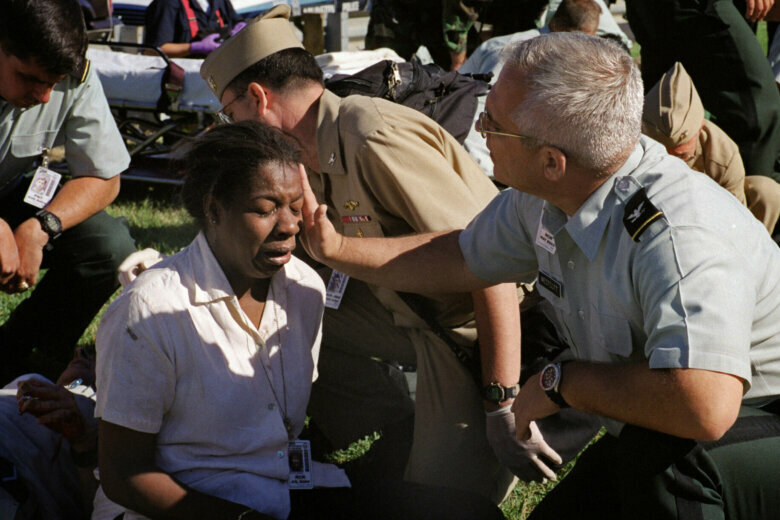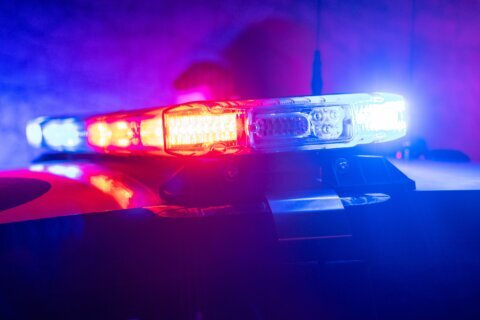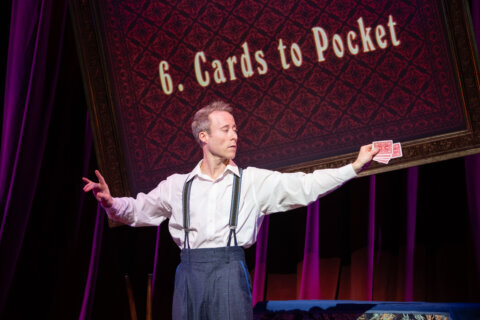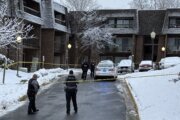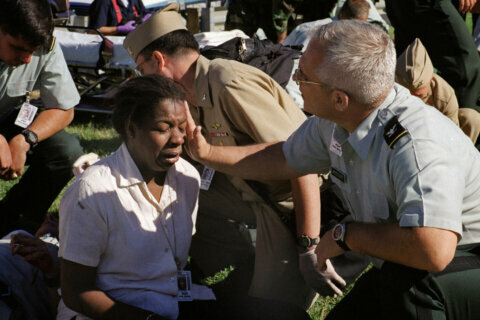
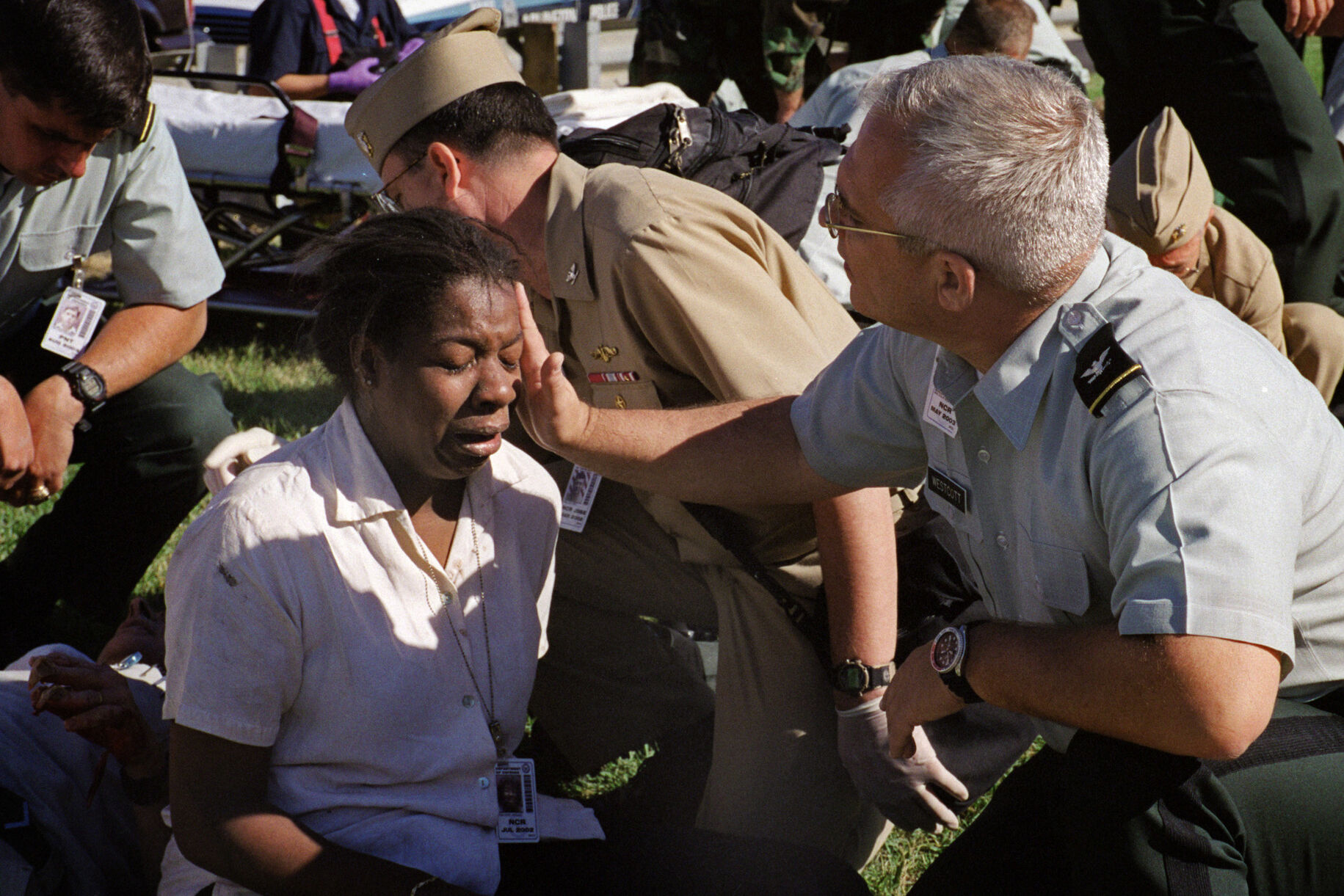
Just back to work from maternity leave on the morning of Sept. 11, 2001, Racquel Kelley was on the fence about going in that day, because she was feeling a bit under the weather.
The information specialist from D.C., who was 32 at the time, settled on dropping her 6-month-old son off at day care and reporting to her job at the Pentagon.
At her office, she remembers, co-workers watched a feed of events unfolding in New York City, where a plane had just crashed into one of the World Trade Center towers.
After discussing the events for a moment, Kelly and her co-workers began to take on the day’s work.
That’s where her recollection stops abruptly.
It picks up after the crash of American Airlines Flight 77 into the western side of the Pentagon.
“I remember waking up in my chair, with destruction around me. I’m on fire,” Kelley said.
For a moment she looked around for her co-workers and didn’t see them.
Kelley was underneath her desk, where she thought of her baby and began to pray. As she prayed, several co-workers who survived were making their way to her, but it was no easy task — Kelley didn’t realize she was beneath a pile of rubble.
Co-workers formed a human chain to get her out. She crawled with the others through the debris to escape. As they made their way outside, she recalls being in shock, and seeing things she thought at the time were imaginary.
“What sticks out is a person sitting at their desk, burned with a piece of paper … they had no head. And I was like, ‘How are they going to read that piece of paper if they have no head?'”
Once they made it to the end of the hole inside the Pentagon, the others encouraged her to jump down. Still in a daze and badly hurt, at the time she couldn’t comprehend why they had to jump from the first floor of the building.
On the grassy area, she recalls being surrounded by cots with people on them, and Col. Bruce Wescott coming to her aid. He would begin treating her until she could be taken to Washington Hospital Center.
While her memory fades in and out, she remembers concerns spreading about another attack.
“Somehow I kept hearing ‘There’s another plane; move everybody,’” Kelley said.
The next thing she recalls is being strapped to the gurney inside a helicopter, and paramedic Barbara Brown speaking with her and intubating her on the way to the hospital. She was the first to be airlifted to the hospital, since she had severe burns and was suffering from smoke inhalation.
Her memory then flashes forward five days, when she woke up at the hospital.
It was a long road to recovery, but she credits the hospital for saving her life for the second time — the first being when she was born four months early at MedStar Washington Hospital Center.
Twenty years later, Kelley said, many of the physical wounds have healed, but she continues to suffer from post-traumatic stress disorder. To this day, she is awakened by nightmares that flash her back to the frightening sight and sounds from that day.
“It’s like a movie reel that plays over and over again, in my head,” she said.
Therapy and yearly retreats with other 9/11 survivors have helped her cope and spot triggers, but she admits she still has a long way to go.
“Even 20 years later, I am still learning to deal with them,” she said.
She said she is forever thankful for the people who that day, and in the days following, helped save her life.
“I was in the ‘wrong’ right place at the right time,” she said.
Now 52, Kelley said she’s thankful to have survived. As she looks at the world today, Kelley frequently thinks back to the nation’s sense of unity in the months and years following.
“We had each other’s back; we were everybody’s brothers and sisters; we loved each other. We were hugging. And I wish we could get back to that spirit, that feeling,” she said.

